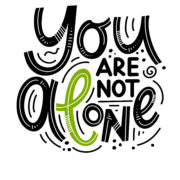You’ve likely heard the term “eating disorder” before. You know it has to do with having a problem with food and eating, but maybe you are interested in learning more about what they are, what causes them, and how they affect people who suffer from them.
Eating disorders are a serious and potentially life-threatening mental and physical condition that involves a complex and damaging relationship with food. This includes, for example, a severe and persistent disturbance in eating behaviors accompanied by distressing thoughts and emotions. Indeed, eating disorders are frequently associated with preoccupations with food, weight, body shape, or with anxiety about eating and/or swallowing certain foods.
Eating disorders are not uncommon. Research suggests that 1 in 20 people will be affected by an eating disorder at some point or another in their lives and that will usually develop in adolescence or young adulthood. Girls and young women between the ages of 12 and 35 are most often affected by them as compared to boys or men. Indeed, 20 million women and 10 million men in the U.S. will have an eating disorder during their lifetime. Accoring to the National Eating Disorder Association (NEDA), eating disorders have historically been associated with heterosexual, young, White females, but in reality, they affect people of all demographics of all ethnicities at similar rates. Misconceptions about who eating disorders affect have real consequences, leading to fewer diagnosis, treatment options, and pathways to help those who don’t fit the stereotype. People of color and members of other marginalized groups are significantly less likely to receive help for their eating disorders. To learn more about how eating disorders affect people of color and other marginalized groups, visit the Identity and Eating Disorder section of the NEDA website.
If you think your young person may be struggling with an eating disorder, the first thing you need to do is learn all you can about this kind of disorder so you fully understand why it is so important to take them seriously.
What are the 3 main types of Eating Disorders?
Anorexia Nervosa
People with anorexia strictly restrict the number of calories and the type of foods they eat. They also tend to exercise excessively, purge with laxatives and by vomiting, and/or binge eat.
Bulimia Nervosa
Bulimia is very serious because it is a potentially life-threatening eating disorder characterized by a cycle of binging and self-induced vomiting aimed at compensating for the effects of binge eating.
Binge Eating Disorder
This is characterized by recurrent episodes of eating large quantities of food in a short period of time until feelings of complete fullness occur. People with this disorder usually experience a sense of loss of control during the binge. They also feel ashamed, distressed, and guilty after the episode. Sometimes, purging is used to counter binge eating. This potentially life-threatening eating disorder is the most common one in the United States.
What causes Eating Disorders?
There’s no one specific cause of eating disorders. But research has found the following are factors:
- Genetic/biological (e.g., having a relative with an eating or mental health disorder)
- Psychological (e.g., perfectionism, poor body image and self-confidence, personal history with an anxiety disorder)
- Social (e.g., weight stigma, dieting at a young age, playing sports or activities that are weight focused, teasing or bullying, social isolation)
These factors can interact differently in different people, so two people with the same eating disorder can have very different experiences and symptoms.
How serious are they?
It is important to remember that eating disorders have the highest mortality rate of any psychiatric illness. They are not just a “phase” that will pass. They are not a choice. They’re a true medical and mental health illness that requires caring, compassionate, yet immediate attention.
Health Consequences of Eating Disorders
Eating disorders can lead to a multitude of serious health problems that can be life-threatening, such as:
Cardiovascular system: drops in blood pressure leading to risks of heart failure; drops in potassium levels leading to risks of irregular heartbeat, heart failure, and death
Gastrointestinal system: fluctuations in blood sugar levels/diabetes, severe damage to stomach and esophagus, and blocked intestines
Neurological: seizures, muscle cramps, fainting, and dizziness
Endocrine system: hormonal imbalance leading to a total absence of menstruation, high cholesterol levels
Developmental: delay in puberty, delay, absence, or irregularity of menstruation, delayed growth
Emotional: feelings of loss of control, anxiety, helplessness, poor body image, and self-esteem; feeling sad, hopelessness, mood swings, and self-harm
Other: severe dehydration, feeling tired and weak, dizziness, feeling faint,
kidney failure, anemia, infections, disturbances in sleep, use of substances like alcohol and drugs
Warning Signs they may be Struggling with an Eating Disorder
- They struggle to eat in front of others.
- They develop rituals based around eating.
- They’re losing and gaining weight rapidly (possibly displaying sunken cheeks, tooth decay, baggy clothing).
- They’re experiencing body dysmorphia defined by an obsession with perceived flaws in their physical appearance.
- They’re constantly eliminating food groups or experimenting with new diet trends.
- They struggle to stay warm, even when it’s hot outside.
- Their stomach constantly hurts.
If after reading the above sections you think your young person may have an eating disorder, you may be asking yourself “What should I do next?”
How are Eating Disorders diagnosed?
A mental health care professional will be able to tell whether your young person suffers from an eating disorder by performing an exam that will evaluate your young person’s symptoms, eating habits, and by gathering information based on their history (height and weight progression chart). He or she may also run other tests if some issues arise as a result of complications due to the eating disorder.
You can also encourage your young person to take the NEDA’s Eating Disorder Screening Tool. It is a short but good questionnaire appropriate for ages 13 and up that will help you determine if it’s time for your young person to see a mental health professional.
Supporting & Communicating with your Young Person
Eating disorders are pretty common in our thin-obsessed society, but unfortunately their importance is often minimized. This makes them particularly dangerous both physically and emotionally. Acknowledging and accepting that they may have an eating disorder may be challenging, but it is a crucial step to take for the sake of your young person’s health and their long-term recovery. Recognizing there may be a problem takes strength and courage, the kind of courage that can ensure your young person’s physical and mental well-being, and that can even save their life.
Once they have accepted the situation, it’s essential that your young person knows you are there for them and that they can count on your unconditional support. Friends and family are key to encouraging loved ones with eating and/or body image issues to want to get better and seek help. Many individuals in recovery from an eating disorder say the support of family and friends was crucial to them getting better. Establishing great communication between you and your young person will play a key role in giving them the support they need. As you are working on caring ways of communicating with them, you may want to keep in mind the following suggestions and conversation starters.
Be fully present and focused on your young person.
Set some time aside and away from distractions and noisy surroundings. Let them know that this time is for them and about them. Listen carefully to what they are ready to share with you, make eye contact, and avoid interrupting them or judging them. It’s important that they feel they have your undivided and unconditional love and attention.
Educate yourself
If you wish to talk to your young person about your concerns regarding their eating habits, it’s essential that you learn all you can about eating disorders. The more you know about them, the symptoms, the health consequences, and the treatment options, the easier it’ll be for you to understand what your young person is going through and how to help them cope with it.
Start the conversation
Before you start a conversation with your young person, remember that it is essential that your voice be gentle, calm, and reassuring when you talk to them. Your peaceful voice and presence will make them feel safe and will help them open up to you. Try using “I” statements in your conversation starters in order to communicate your concerns, while avoiding blame or judgment. This could cause your young person to become defensive and unwilling to talk to you.
-
- “I feel like something is bothering you, would you like to talk about it?”
- “I noticed you haven’t eaten much at dinner lately. Is everything okay?”
- “I am feeling concerned and worried about you and I am not sure what to do.”
Focus on their behavior
When communicating with them about their eating habits and about eating disorders, it’s important that you focus on your young person’s behavior rather than on their appearance. Focusing on and making remarks about how skinny they are will only make things worse.
Stay calm
Many young people with eating disorders may feel their privacy has been violated when they are being confronted. They may feel embarrassed when they realize you noticed the behaviors they worked so hard at hiding. Your young person may react quite aggressively towards you when you try to talk to them. It’s important that you stay calm and centered and that you don’t take their reaction personally. Even if it’s directed at you, you have to remember that it has nothing to do with you.
Talk about treatment options
A professional who specializes in eating disorders will explain to you and your young person that eating disorders are treatable. Treatment usually involves a combination of psychological and nutritional counseling, along with medical and psychiatric monitoring. In any case, it is absolutely necessary that you seek professional help for your young person as soon as possible because eating disorders can potentially put their life in danger.
Supporting Yourself
Taking care of yourself is the greatest gift you can give your young person. Caring for a young person with an eating disorder can be particularly trying, but there is another kind of challenge caregivers in this situation are facing — their own feelings and emotions.
Guilt and self-blame are common traps for caregivers of children with an eating disorder. They may feel like it’s their fault or that they did something wrong that could have caused their young person’s suffering. It’s important to understand that an eating disorder isn’t anyone’s fault. There is no point ruminating about what you could have done differently. The only thing that matters at this point is giving your young person the loving support they need as they are moving towards recovery.
However, for you to provide the caring and compassionate support your young person needs, it’s essential that you realize how important it is that you take good care of yourself physically, mentally, and emotionally. You matter too. Don’t forget about yourself. What you are going through is very stressful and you shouldn’t minimize or dismiss that stress and its consequences. Taking the time to give yourself what you give your young person everyday — understanding, kindness, compassion, patience, love, and support is the greatest gift you can give yourself, your young person, and your family.
Make sure you make room for some “me time” and try some of these self-care strategies:
- Try to exercise on a regular basis.
- Take walks in nature.
- Make time for activities you enjoy doing and that make you feel good.
- Respect your body by eating healthy food and getting plenty of sleep.
- Talk and confide about how you feel to someone you trust such as a family member, a friend, or a therapist.
- Join a support group with caregivers who are going through the same thing as you are. You are NOT alone.
- Start a mindfulness and meditation practice and discover the incredible healing power of these practices.
Practicing self-care is crucial for your well-being and that of your young person. Be kind to yourself, you truly deserve it.
Additional Resources
National Eating Disorders Association (NEDA):
Online chat and support through texting are also available:
1 (800) 931-2237 | www.nationaleatingdisorders.org
The Alliance for Eating Disorders Awareness:
www.allianceforeatingdisorders.com
National Association of Anorexia Nervosa and Associated Disorders (ANAD):
Eating Disorder Helpline: 1 (888) 375-7767 | www.anad.org
Eating Disorder Anonymous:
www.Eatingdisordersanonymous.org
National Alliance on Mental Illness Helpline:
1 (800) 950-6264 or in crisis text “NAMI” to 741741
SAMHSA’s National Helpline: 1 (800) 662-4357
This helpline is a free, confidential, 24/7, treatment referral and information service for individuals and families facing mental and/or substance disorders.
Teen Tribe:
www.Support.therapytribe.com/teen-support-group
This website provides peer-to-peer group support for teens who go through challenging times. This is a free service.
ADAA Directory:
www.Adaa.org/supportgroups
This website allows teens and family members to search support groups in their local area, as well as phone or online groups.
Suicide/Crisis Support Hotline: 1 (800) 273‑TALK (8255)
Or text the Crisis Text Line – “HELLO” to 741741











